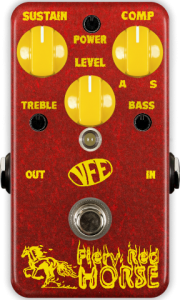When you tune a note, like a guitar string, to A, you’re tuning to the pitch at 440 Hz, right?
Probably. But it wasn’t always that way.
Bobby Owsinski, one of my favorite music-related bloggers, wrote recently about how the A=440 Hz standard came to be, and some alternatives. He says that prior to 1940, A = 432 Hz was the most common standard, and he links to a paper that dives into the history of the definition of A a bit deeper (including some Nazi-related conspiracy theories, which I don’t endorse). Here’s a video of a snippet of music, one version tune to A=440, the other to A=432:
Watch it and see what you think. I prefer the A=432 version.
The paper also talks about the A=444 standard. While I prefer A=432, I’m also interested in A=444 because both my tuner (Boss TU-2) and Drew’s (TC Electronic Polytune) can be adjusted to tune to A=444, but not A=432. I’m trying to talk him into trying tuning to A=444 for a few weeks, to see what it feels like.
Or, maybe we could approximate A=432 by consistently tuning everything five or 10 cents flat.
Have you ever tuned to anything other than A=440?


